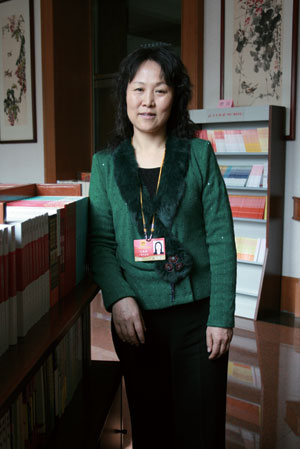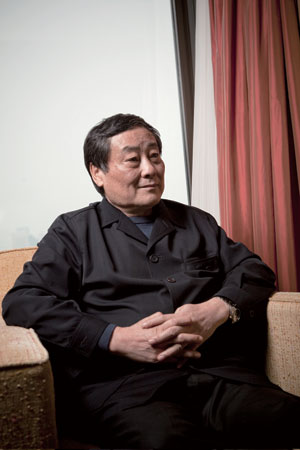
During the previous NPC and CPPCC sessions, we interviewed Ms. Wang Longxia, director of Intellectual Property Office of Galanz Group. This year she again tabled a motion on behalf of the corporate sector. The difference is that this year she was “sided” by Zong Qinghou, the Board Chairman of Wahaha Group.
Wang: Continuous attention on IP talents in enterprises

NPC Representative Wang Longxia put forward only one motion this year, that is, the professionalization of intellectual property staff in enterprise; a motion which she prepared last year, but was grounded because it was not mature enough.
One year later, Wang had stronger feelings on the lack of professional IP talents in enterprises. She told China IP, “we employed two young men last year, but they left as soon as they were well trained. I was quite depressed.”
There is a big flow in IP staff in enterprises, said Wang, but it is not a flow between enterprises, but from enterprises to agencies. “We feel like training camps for agencies,” she complained.
Based on her experience in research and training, Wang pointed out that most of the society mistakenly took IP work in enterprises as having only two parts: patent applications and lawsuits. In enterprise training, 95% of the questions raised to her are focused on these two fields. But in fact, IP cases in enterprises are highly complicated, and one of the neglected jobs is the combination of IP and R&D. “Regardless of scale and strength, an enterprise should have IP staff take part as long as it has a research and design department. In some Japanese enterprises, IP staffs even participate at the early stage of creative ideas.”
In her motion, Wang hopes the state will conduct vocational qualification examination for IP workers to give them a sense of professional identification, so that they will be more willing to stay at enterprises to promote IP work there. Wang also hopes for more media coverage of IP work in enterprises, instead of only on application numbers and case reports.
Zong: Suggestions on revising the Trademark Law

Perhaps because he was profoundly impressed by the decade-long dispute between Danone and Wahaha, Zong Qinghou submitted his motion, which included three suggestions on the revision of the Trademark Law during the 2010 sessions.
Firstly, he points out that the double-track system in well-known trademark recognition has resulted in excessive recognition at local courts and some local governments’ pursuit of numbers has done harm to the protection of well-known trademarks. In response, Zong suggests that the Law dedicate a chapter to regulations on the protection of famous and well-known trademarks.
Secondly, he believes that the Law stresses more passive protection and lacks protection for defensive trademarks and associated trademarks. Zong suggests that stipulations of defensive trademarks and associated trademarks be added to guide right holders in their protection of well-known trademarks in practical use and registered trademarks.
Lastly, Zong says that the absence of limitations on the qualification of applicants of trademark opposition and review might lead to an abuse of power and a prolonged application period, which might be as long as seven or eight years. So he proposes to limit the qualifications of applicants to better prevent abuse of the opposition procedure.
(Translated Li Heng)
|
Copyright © 2003-2018 China Intellectual Property Magazine,All rights Reserved . www.chinaipmagazine.com 京ICP备09051062号 |
|
|



